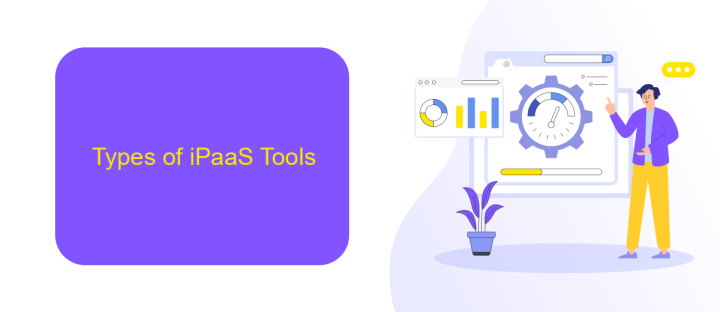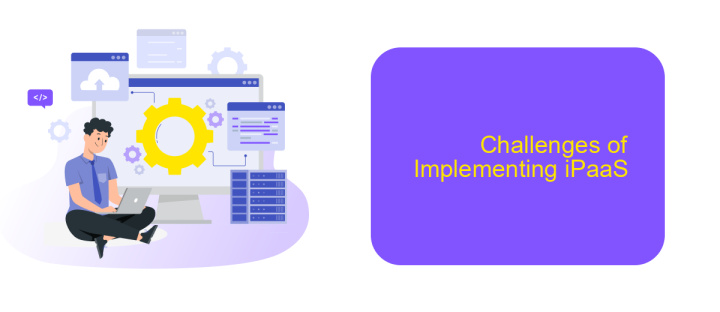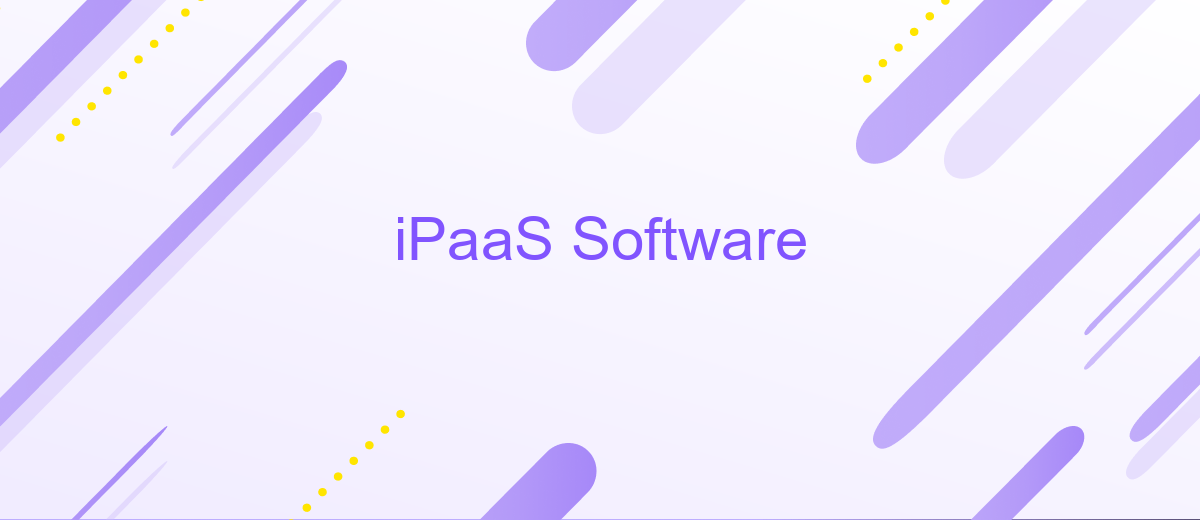iPaaS Software
Integration Platform as a Service (iPaaS) software is revolutionizing the way businesses connect disparate systems and applications. By providing a cloud-based solution, iPaaS enables seamless data integration, streamlining workflows, and enhancing operational efficiency. This article delves into the key features, benefits, and use cases of iPaaS, illustrating why it has become an indispensable tool for modern enterprises.
What is iPaaS Software?
Integration Platform as a Service (iPaaS) Software is a cloud-based solution that enables the seamless integration of various applications, data, and processes across different environments. This technology allows businesses to connect disparate systems, automate workflows, and ensure data consistency without the need for extensive coding or manual intervention.
- Automates data synchronization between multiple applications.
- Facilitates real-time data exchange and communication.
- Reduces the complexity of managing integrations.
- Enhances scalability and flexibility of IT infrastructure.
One notable example of an iPaaS solution is ApiX-Drive, which simplifies the integration process by providing a user-friendly interface and pre-built connectors for various applications. With ApiX-Drive, businesses can quickly set up integrations, monitor data flows, and troubleshoot issues, thereby enhancing operational efficiency and reducing the time required for manual data handling. This makes iPaaS an essential tool for modern enterprises seeking to streamline their digital ecosystems.
Types of iPaaS Tools

iPaaS tools come in various types to address different integration needs and complexities. Some iPaaS solutions are designed for simple, point-to-point integrations, allowing businesses to quickly connect two applications with minimal configuration. These tools are ideal for small to medium-sized businesses that need to automate workflows without extensive technical expertise. On the other hand, enterprise-grade iPaaS platforms offer more advanced features such as multi-step workflows, data transformation, and support for a wide range of protocols and APIs. These robust solutions are tailored for larger organizations with complex integration requirements and provide extensive customization options.
Another type of iPaaS tool focuses on ease of use and accessibility, often featuring user-friendly interfaces and pre-built connectors. ApiX-Drive, for example, simplifies the integration process by offering a vast library of ready-made connectors and an intuitive interface that allows users to set up integrations without coding. This type of iPaaS is particularly beneficial for businesses looking to quickly deploy integrations and automate tasks without the need for specialized IT resources. Overall, the choice of iPaaS tool depends on the specific needs, technical capabilities, and scale of the organization.
Benefits of Using iPaaS

Using iPaaS (Integration Platform as a Service) offers numerous advantages for businesses looking to streamline their operations and enhance productivity. By leveraging iPaaS solutions, organizations can seamlessly integrate various applications and data sources, enabling smoother workflows and more efficient processes.
- Scalability: iPaaS platforms can easily scale with your business needs, accommodating increased data volumes and additional applications without significant infrastructure changes.
- Cost-Effective: iPaaS reduces the need for expensive custom integrations and ongoing maintenance, offering a more budget-friendly solution for businesses of all sizes.
- Enhanced Data Accuracy: By automating data transfers and synchronization, iPaaS minimizes errors and ensures that information is accurate and up-to-date across all systems.
- Improved Efficiency: iPaaS platforms like ApiX-Drive allow for quick and easy setup of integrations, reducing the time and effort required to connect different software applications.
- Flexibility: With a wide range of connectors and integration options, iPaaS solutions provide the flexibility to adapt to changing business requirements and technology landscapes.
In conclusion, iPaaS solutions offer a robust and flexible approach to integration, helping businesses achieve greater efficiency, accuracy, and scalability. By utilizing platforms such as ApiX-Drive, organizations can streamline their integration processes and focus more on their core business activities.
Challenges of Implementing iPaaS

Implementing iPaaS (Integration Platform as a Service) presents several challenges for organizations. One of the primary challenges is ensuring seamless integration across diverse systems and applications. This requires a deep understanding of both the legacy systems and the new applications being integrated.
Another significant challenge is data security and compliance. As data moves between different systems, ensuring that it remains secure and meets regulatory requirements can be complex. Additionally, there is the challenge of managing data transformation and ensuring data consistency across platforms.
- Complexity of integration across diverse systems
- Ensuring data security and compliance
- Managing data transformation and consistency
- Handling scalability and performance issues
Tools like ApiX-Drive can help mitigate some of these challenges by providing a user-friendly interface for setting up integrations and automating data flows. However, organizations still need to invest in skilled personnel and robust planning to successfully implement iPaaS solutions.
Best Practices for Successful iPaaS Implementation
Implementing an iPaaS solution effectively requires thorough planning and a clear understanding of your integration needs. Start by identifying the key business processes that need integration and mapping out the data flow between different systems. This will help you prioritize which integrations are most critical to your operations. Additionally, choose an iPaaS platform that supports a wide range of applications and offers scalability to grow with your business. Platforms like ApiX-Drive can simplify the integration process by providing pre-built connectors and a user-friendly interface, allowing you to set up integrations without extensive coding knowledge.
Testing is a crucial step in ensuring the success of your iPaaS implementation. Conduct comprehensive tests to identify any potential issues and ensure data is accurately transferred between systems. Regularly monitor the performance of your integrations to quickly address any problems that arise. It's also important to provide training for your team to ensure they are comfortable using the new system and understand how to troubleshoot common issues. By following these best practices, you can achieve a seamless and efficient iPaaS implementation that enhances your business operations.
- Automate the work of an online store or landing
- Empower through integration
- Don't spend money on programmers and integrators
- Save time by automating routine tasks
FAQ
What is iPaaS software?
How does iPaaS differ from traditional middleware?
Can iPaaS be used for real-time data integration?
Is iPaaS suitable for small businesses?
What are some common use cases for iPaaS?
Routine tasks take a lot of time from employees? Do they burn out, do not have enough working day for the main duties and important things? Do you understand that the only way out of this situation in modern realities is automation? Try Apix-Drive for free and make sure that the online connector in 5 minutes of setting up integration will remove a significant part of the routine from your life and free up time for you and your employees.


